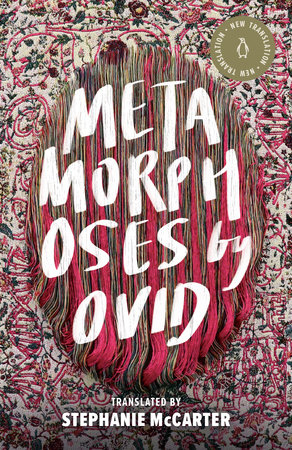4thace reviewed Metamorphoses by Ovid
Review of 'Metamorphoses' on 'Goodreads'
5 stars
In this classic there is no real plot, only a series of stories set in various places and at various times which all depict the transformation of people into other things. They get changed into birds, trees, bodies of water, monsters, stars, people of the opposite sex or hermaphrodites. The reason for the transformation may be a curse from a god or a sorceror, or a god rescuing someone from a desperate situation, a punishment for some misdeed, the result of a prophecy, honoring some noble deed, excessive grief or other emotion, or simply accidental bad luck. Many are nymphs or human girls lusted after by male gods, only rarely the result of a woman's desire. A few of the characters who aren't gods appear in more than one tale such as Hercules, not as the person being transformed, many of them only in a single story because the transformation …
In this classic there is no real plot, only a series of stories set in various places and at various times which all depict the transformation of people into other things. They get changed into birds, trees, bodies of water, monsters, stars, people of the opposite sex or hermaphrodites. The reason for the transformation may be a curse from a god or a sorceror, or a god rescuing someone from a desperate situation, a punishment for some misdeed, the result of a prophecy, honoring some noble deed, excessive grief or other emotion, or simply accidental bad luck. Many are nymphs or human girls lusted after by male gods, only rarely the result of a woman's desire. A few of the characters who aren't gods appear in more than one tale such as Hercules, not as the person being transformed, many of them only in a single story because the transformation they suffer is final. I think most of the stories come from Greece, but the last chapter concentrates on specifically Latin myths, which were less familiar to me and thus more interesting.
Besides the transformation motif, there are other recurring elements to help with the storytelling. People keep secrets from their spouses, families, and communities. Some transformations are instantaneous, such as the one caused by a glance at Medusa, while others are gradual enough that the person being transformed just starts to notice it happening, reacts with horror or amazement, and might even give their last words as a human. Mostly mortals are undergoing metamorphosis caused by a god they have no power to do anything about, but there is one goddess, Proserpina, who becomes an underworld goddess when she consumes pomegranate seeds there, and is only partially compensated for the trouble. There isn't any big discussion of the origin of the major gods or their family relations before they became gods, you just have to accept that they are realities in this world with their given traits and attitudes.
With any work of this age there is a lot of cultural adjustment the reader has to make to get into the different plots. When I told my friend that I was reading this, his reaction is that it was terribly "rapey," which isn't inaccurate. There is a fair amount of graphic violence Overall the attitude toward young women whether mortal or semi-divine is that of subjugation, which may elicit pity but almost never lead to action out of indignation. The only exception I can think of was the story of Atalanta, who is able to rise above her role through her devotion to Diana. There are other implicit attitudes toward enslaved people, the elderly, nobility, and barbarians which we might not match today. I was able to make allowances for all these differences, but other people might not want to and would find that they spoil their appreciation for the work.
I listened to an audiobook version of the work translated by Ian Johnston and narrated well by David Horovitch. I think they elevated the text for me and kept what might have been a repetitive set of myths (over two hundred) varied enough to want to keep going. I didn't really try to keep track of all of the different characters and settings but imagine that this would be hard even reading a printed version. It was not a verse setting of Ovid's work, and I like to think that someday I might take a look at the original and try to get a sense of the music of the lines to see what I missed. The narration comes in at over seventeen hours so it's hard to imagine experiencing the whole thing again, but maybe I will dip into one myth or another to refresh my memory.

